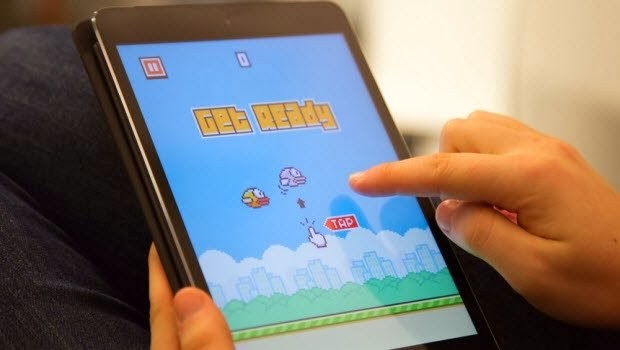In the past month, the world witnessed the meteoric rise and fall of the mega-popular smartphone game “Flappy Bird,” created by Vietnamese developer Dong Nguyen.
The game involved piloting a pixel-style bird through a course of pipes reminiscent of an old Mario game, and was notoriously frustrating. Facebook users posted their high scores just about every day, myself included. But just as quickly as the game became an overnight sensation, it was deleted and people forgot about its existence.
Nguyen chose to delete “Flappy Bird” on Feb. 9 due to overwhelming criticism regarding the difficulty of the game. “I am sorry ‘Flappy Bird’ users, 22 hours from now, I will take ‘Flappy Bird’ down. I cannot take this anymore,” wrote Nguyen in a public statement via Twitter on Feb. 8. “It is not anything related to legal issues. I just cannot keep it anymore… I also don’t sell ‘Flappy Bird,’ please don’t ask.” Clones of the game such as “Happy Bird” were eventually banned from the App Store on Feb. 17.
Part of the reason for the game’s major success was its simplicity. The design and concept of “Flappy Bird” was minimalistic, and gameplay was easy to understand. No complicated tutorial was necessary. Just one tap of the screen sent the little orange bird soaring into the air; navigating the blocky, green, Mario-esque pipes became, more than anything, a test of timing.
And what a test it was: that little chicken nugget was virtually incapable of flying properly and would crash into anything in its path. Maneuvering the bird out of harm’s way was an ordeal unlike any other. Just as soon as you thought you had cleared a gap, that little demon would inevitably crash headlong into the pipes, making you ponder your own inadequacy. Every second I played that game was consumed by frustration, blinding rage, confusion and a profound sense of failure. And somehow, I loved it.
There was something undeniably satisfying about achieving a new high score, even if you had to spend countless days and nights at it. Every failed attempt made you groan in discontent, and yet spurred you on, closer to the victory that surely awaited you if you could just beat 15. My high score? 21. It could make an hour in the airport pass like five minutes. It was pure fun, even if most denied it. So where did it go wrong?
People got angry. Players worldwide were so upset that they couldn’t beat their high score that they personally wrote to the developer. These complaints were especially prevalent on the App Store, where many reviewers said the game had “ruined their lives” and called it “the most rage-inducing game ever.”
There were even rumors that a Chicago teen had stabbed his brother over the game; it fortunately turned out to be false. Nguyen would not have deleted it unless he felt it wasn’t worth the drama anymore – he was, after all, making $50,000 a day from in-app revenue, according to Forbes.
Goodbye, “Flappy Bird.” May you never fly again. You were addictive. You were a brief trend. You were enjoyable. But I hope a game this universally hated never comes around again.


